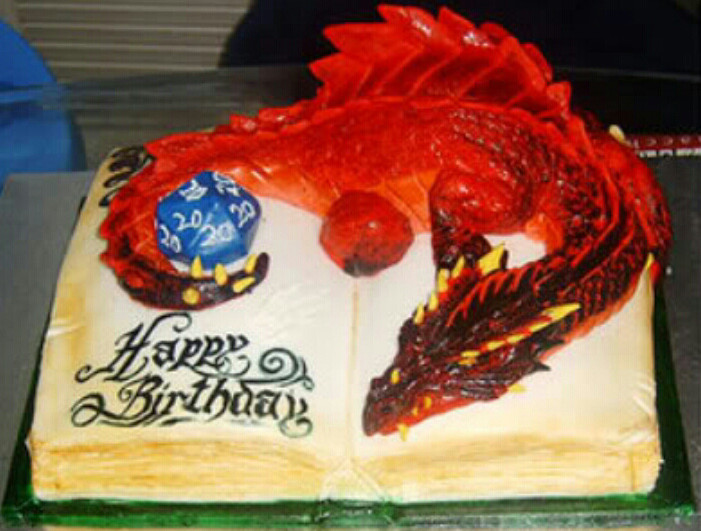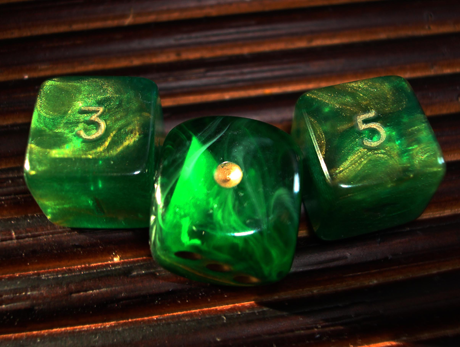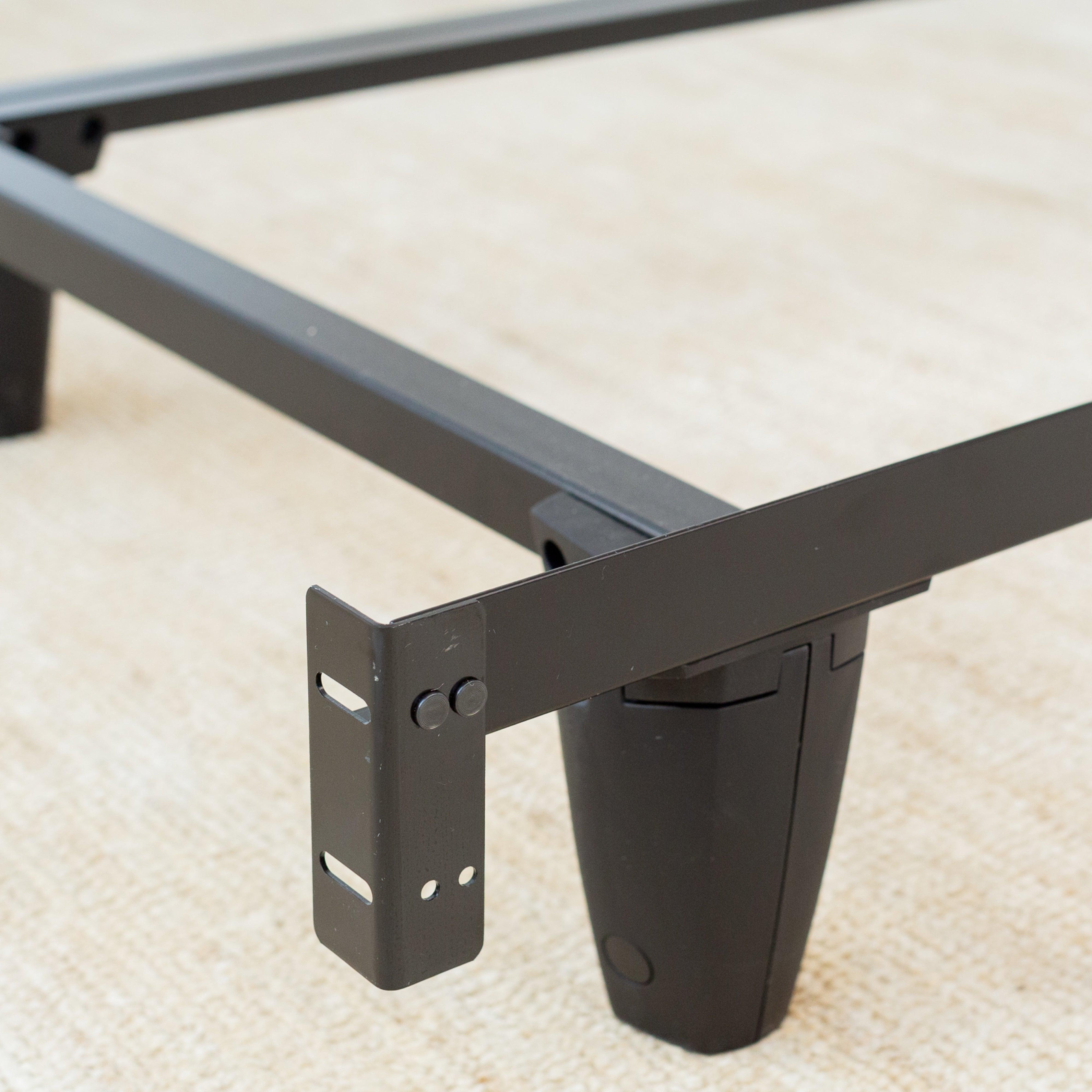Am I a D&D player, a former D&D player, or a hipster D&D player?
2014 is Dungeons & Dragons’ 40th anniversary, and I should be more excited. If it wasn’t for finding D&D in my teens, I might still have the social sense of direction of a near-sighted dog, either rushing face-first into walls or tiptoeing into every social situation. But I haven’t played Dungeons & Dragons-brand roleplaying entertainment in over five years. When I hear “D&D” now, I scoff. I get defensive. I raspberry. I do everything but emotionally connect D&D with the role it played (hah, didn’t even do that on purpose) in my formative years.
I discovered D&D during an isolated and lonely period of my life. I went from someone who didn’t connect with people on a personal level to someone who connected with a group of friends on multiple levels. I was a player and a Dungeon Master in a group of a dozen young gamers who were always willing to drop some dice and go on adventures.
This was 2nd edition in the early 90s (I want to say 1993). Everyone I played with was in my grade, and we played together until we graduated in 1997. From then until about 2002, I grew apart from those friends as we went into different fields in different schools, and at the same time I grew apart from D&D. This was more of a board game, CCG, and Warhammer 40K phase of my life as a gamer, with a brief but influential dip into Vampire – The Masquerade. I still occasionally got in a game of D&D, and a bought an issue of Dragon magazine from time to time, but it was more nostalgia than filling the same creative and social need as D&D in high school was for me. But in 2002, when Marc, my high school group’s other main DM (and my main DM when I was a player) reached out to me about forming a new D&D group, I bulled through everything in my way to reach back. We started a group at the tail end of 3e, gradually switching to 3.5 over the next few years after it was announced and released.
And that was it. My love of D&D cemented in my early 20s. I understood the game’s social and storytelling potential on whole new levels, and I started gaming two or three times a week. Our group was up to 15 people regularly playing, to the point that we basically created X-Men Gold and X-Men Blue teams that played different adventures in the same campaign, occasionally getting together for crossover events. I started running a D&D campaign for teenagers at Quantum Cards, my FLGS at the time. Suddenly I was giving a veteran’s perspective on D&D to a new group. It was like they started as 3rd level gamers and I just took a level in the gamer mentor prestige class. My D&D microcommunity was growing. Everyone I played with played the game slightly differently, but we were all playing the same game. Then the 4th edition announcement came.
It was basically the wrong timing with the worst tone to appeal to me. I’d switched editions before; the switch from 2nd ed to AD&D was pretty painless, and it was more of a blending of the editions than a full flip; switching from 3rd to 3.5 was a nuisance and an expensive one, but we had so much momentum as a group with no particular attachment to these rules at the time that we rolled uphill and over that hump. But by 4th, we were committed to 3.5. We liked it. We were excited by it. We had ideas for other books they could release that would expand our already extensive collection. Being told that 4e was imminent meant that this lush rule set with so much room to grow was being stunted, like a goldfish staying the same size because it is never transferred to the larger bowl it needs to grow. Worse, the 4e announcement didn’t detail how much better of a goldfish it was, only that it was getting a much bigger tank, with a neon castle, a self-cleaning filter, and plenty of other toys that could have just as easily been given to our fish. Finally, the tone really hurt. In the years we played 3.5, the publisher of D&D went from a vague “they” to people with names and faces and even personalities we recognized. “They” didn’t announce 4e, Chris Perkins did. The guy who regularly told us how great 3.5 was on the official D&D podcast was now telling us he was rescuing us from that awful edition we were stuck with and introducing us to this amazing new edition that, without any details about the game, was guaranteed to be better.

But what a fishtank!
I felt like Ralph Wiggum, who has been telling Krusty the Klown about how I love Dungeons & Dragons and when I grow up I’m going to marry it, only for D&D to yell “Noooooooooooooooooooooooo! Now you listen to me! I don’t like you, I never liked you, and the only reason I gave you that stupid sense of place in high school is because nobody else would!” You could freeze frame when I stopped thinking of myself as a D&D fan and became a 3.5 loyalist. I kept buying Dungeons & Dragons books even though they were published by the people who rejected me, but only because they were 3.5 books, books related to the edition I played rather than the game.

3.5, I choo-choo-choose you!
Then Pathfinder happened. Pathfinder rocked my socks. It was a smooth transition from 3.5 because Paizo made it a smooth transition. I became a fan of Paizo in a way I was never a fan of Wizards of the Coast, and that further drove me away from Dungeons & Dragons. To me now, D&D is a brand WotC owns and publishes. It was not Dungeons & Dragons I clung to like a stirge in high school, it was fantasy roleplaying, and Pathfinder is the fantasy roleplaying game I play now.

Left: Geek. Right: Hipster.
Which brings me to hipsters. I’m not sure I know any hipsters or if hipster is the scratched side of the two-headed coin that is geekdom, but there is definitely a passive aggressive war between geeks –those who love something because it’s awesome- and hipsters –those who love something because it’s unpopular. The more I think about it, the more hipster feels like a label someone who doesn’t’ understand your interests can throw on you. “Oh, you prefer Image comics to Marvel and DC? You’re just trying to be different.” “You like fantasy but think Lord of the Rings and Harry Potter are boring? You don’t really, you just don’t know how to deal with something you like being popular.” “You’re not buying Pathfinder because you like it, you’re buying Pathfinder because you’re mad at Dungeons & Dragons.”

Most successful rebound ever
I wish I could be as into the 40th anniversary as D&D as I feel I should be. Not just because if it wasn’t for D&D, there wouldn’t be a Pathfinder. Not just because it helped me find my place. I should be happy because for 40 years, Dungeons & Dragons has helped people like me find their place. My place may not be with D&D anymore, and I may need to intellectualize why I’m saying this more than simply feeling this way, but D&D means a lot of things, and I have needed a lot of what D&D means in my life. So whether this is coming from me as a D&D player, a former D&D player, or a hipster D&D player, or some combination, happy 40th anniversary, Dungeons & Dragons!








Leave a Reply